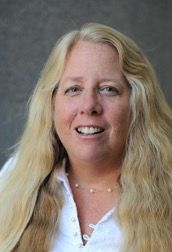Chromatography Advances at EAS 2020
The 2020 Eastern Analytical Symposium has gone virtual for 2020, and although we will miss the camaraderie of face to face interaction, the theme of this year’s conference “Analytical Science: Cornerstone of Innovation” indicates the strength of the separation sciences and the talks that you will not want to miss.
EAS Award for Outstanding Achievements in the Fields of Analytical Chemistry
This year, Susan Olesik from The Ohio State University is the EAS Awardee for Outstanding Achievements in the Fields of Analytical Chemistry. Best known for her chromatography as well as mass spectroscopy expertise, Dr. Olesik will present a plenary lecture entitled "The Fascinating Impact of Nanoscale Structure on Chromatography and Mass Spectral Ionization”. The Field's Session for her award includes a group of separation scientist leaders, including University of Buffalo’s Luis Colón, University of Waterloo’s Janusz Pawliszyn, Lisa Holland from West Virginia University, and Jared Anderson from Iowa State University. Their talks will bring novel and innovative chromatographic and sample preparation technology presentations to the program at EAS.
Invited Talks: Green Chemistry, Forensics, Cannabis, Bioanalysis, Biologics, Pharmaceutical Analysis, and More
Invited speaker sessions are the strength of EAS; this year will be no exception. In two green chemistry sessions sponsored by the Chromatography Forum of the Delaware Valley, advances in sustainability using liquid and supercritical fluid chromatography along with the robust application of gas chromatography will be discussed. From reaction monitoring of pharmaceutical processes, the use of enhanced fluidity as a more sustainable solvent through the evaluation of alternative solvents in sample preparation followed by comments on volatile organic compound (VOC) emission testing, to embracing sustainable freshness and looking at more efficient gas chromatography processes, the direction is toward greener chromatographic systems. Additionally, invited presentations by experts on the challenges of cannabis testing, handwriting and drug analysis in the field of forensic science, bioanalysis of sensitive and accurate biologic therapeutics and biomarker analysis, life cycle management of analytical methods, pharmaceutical forensics for safe manufacturing, and supply and counterfeit screening will contribute to the separation science scope of EAS.
New Technical Powerhouse Sessions on Hot Topics with Live Audience Virtual Roundtables
Of special note are the new invited technical powerhouse sessions, where leaders on the current hot topics of technical and industrial interest will speak, and attendees will have the opportunity to engage in virtual round table discussions with the experts, as well as fellow conferees. The hot separation topics in 2020 are “Impurities in the Pharmaceutical Industry” and “Analytical Challenges and Opportunities in Drug Product Development”.
EAS Separation Science Award Session
In the EAS Separation Science Award Session, 2020 awardee Joe Foley from Drexel University will tell us whether two columns are better than one via a discussion on the hydrophobic subtraction model. Included in this session are a presentation by Isiah Warner of Louisiana State University (“Materials Approach to Separation Science”), as well as a lecture by Andre Striegel from NIST (“Determination of Polymer Molar Masses when Using Mixed Solvents”) and Mark Schure of Kroungold Analytical (“Capillary Columns Versus Traditional Packed Beds for Biomolecular Analysis”).
Presentations Available November 16 through December 31
The advantage of being virtual in 2020 is that all presentations are available from November 16 through December 31, 2020 for your viewing pleasure. Please join EAS on November 16th, and experience the latest developments in the field of separations.

Mary Ellen P. McNally is a Global R&D Fellow at the Stine Haskell Research Center of FMC Corporation, in Newark, Delaware.
Determining the Effectiveness and Safety of Cinnamon Derivatives for Diabetes Treatment with HPLC
March 27th 2025Cinnamon and its byproducts have been used for many years because of their antidiabetic effect. In a joint study conducted by Gazi University (Ankara, Turkey) and Düzce University (Düzce, Turkey), high performance liquid chromatographic (HPLC) and thin-layer chromatography (TLC) analyses, macroscopic analyses, and enzyme inhibition assays on diabetes-related enzymes were performed on cinnamon samples to determine whether they are safe to use for health purposes.





